
You are reading:

You are reading:
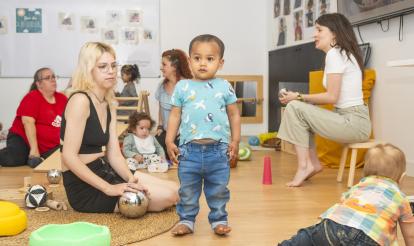
20.11.24
5 minutes readThe early stage of life is crucial for childhood development. Hence the importance of projects like Family Spaces 0-3, a pioneering initiative supporting early childhood for families in situations of social vulnerability, promoted by the CaixaProinfancia programme of the ”la Caixa” Foundation.
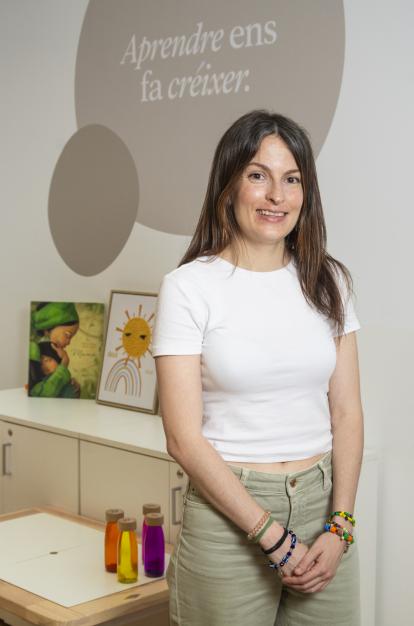
The project’s purpose is to enhance the parenting skills, social abilities and employability of the participating families, as well as to support the psychomotor development of the children.
The pilot programme was conducted last year in 20 social entities collaborating with the CaixaProinfancia programme across nine autonomous communities (Andalusia, Aragon, Canary Islands, Castille-León, Catalonia, Valencian Community, Basque Country, Community of Madrid and Region of Murcia).
Starting this year, it is expanding to 30 entities and will progressively increase in the areas where CaixaProinfancia operates.
One of the social entities implementing the Family Spaces 0-3 project is the Fundación de la Esperanza in Barcelona. Soledad García, an educational psychologist, specialist in maternal and parenting support and early years educator in this organisation’s space, explains: “The initiative arises from the need to extend support for families along two very clear lines: social support, through the figure of the social worker; and family support in the educational sphere, provided by an early years educator, as well as activities aimed at addressing various parenting topics.”
Additionally, the space also serves “as a meeting and relationship space for families, where they can share experiences and expand their social network.”
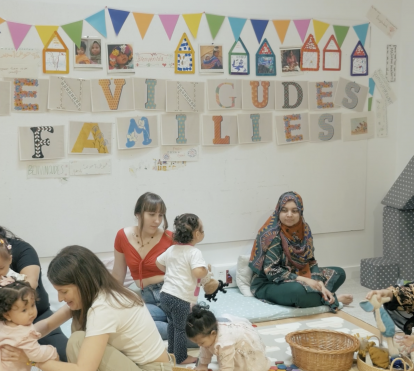
The project supports families in vulnerable situations with limited social networks in the local area, primarily those who have undergone a migration process and therefore have their family and social network in their country of origin. “Many families are very isolated, experiencing migration grief; some are in an irregular administrative situation, with difficulty accessing the labour market, facing precarious housing conditions or dealing with various challenges that can make motherhood, a stage already vulnerable in itself, even more fragile,” explains Soledad.
They are usually referred by social services or primary healthcare centres. They may also have previously attended a municipal child development and early intervention centre or other local organisations where their social worker or educator identifies a need and decides to refer them. “Many people also come to us thanks to word of mouth,” Soledad admits.
One of the users is Maryam, a 33-year-old Pakistani woman who has been living in Spain for almost 19 years. She is the mother of three daughters and attends the space with the youngest. “I found out about the project through some friends and I love it. Everyone is very friendly, and we learn how to take care of our babies. It has brought a very positive change to my family’s life,” she says.
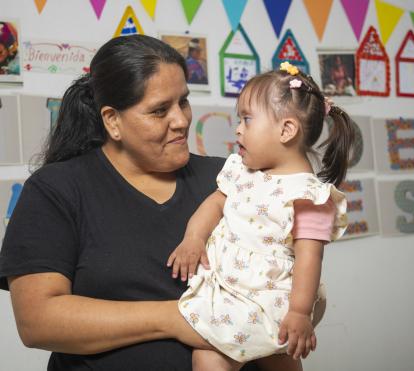
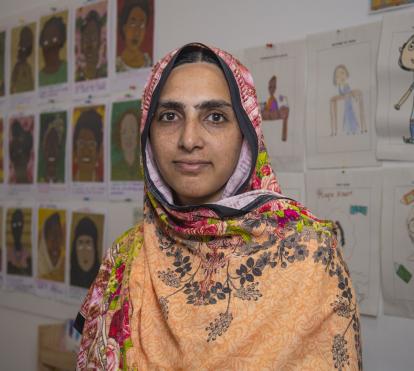
Another mother who comes to the space is Sherley, who arrived from Peru three years ago. “A therapist who was working with my daughter told me about this CaixaProinfancia project,” she recalls. “I wanted Rebecca to interact with other children and the project staff welcomed us warmly, they made us feel part of a family. It’s a place where we’re shown love, receive a lot of support, and the little ones have fun and learn.”
The Family Workshops are the cornerstone of the educational aspect of the project. Between six and eight families with children of the same age group attend once or twice a week. “The aim is to strengthen the relationship between the mother or father and the child in order to support their holistic development,” explains Soledad, who adds: “They provide a bonding space away from the daily routine.”
In these spaces, families feel safe and supported; they can share their concerns and feel they are not alone. “Nowadays, motherhood is becoming increasingly isolating, but coming here makes it a little more communal: many acts of support and mutual help are generated, the experiences of all the families are valued and they feel recognised and validated. It’s an enriching learning experience on many levels and the intercultural dimension and diversity play an important role,” explains the educational psychologist.
The Encounters 0-3, designed to help families get to know each other and share their concerns, facilitate the assessment of parenthood competencies and child development. “We also use them to celebrate various local festivities or those specific to the culture of the families who come to the space, such as the end of Ramadan (Eid), which we mark with a shared celebration that the families appreciate very much,” says Soledad.
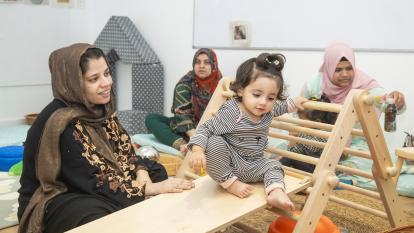
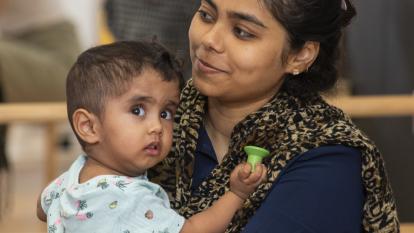
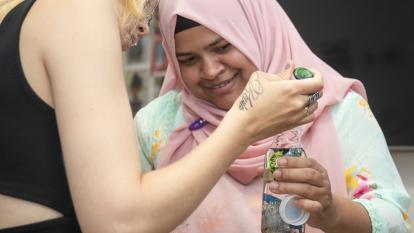
In addition, the families can benefit from the support service for labour insertion, with personalised career pathways, and also receive an annual financial aid of €900 to help cover their child’s expenses.
Soledad acknowledges that it is exciting to be able to accompany the families throughout their journey. She recalls that, “Sometimes, many of them arrive immersed in situations of considerable stress, worry, anxiety or depression, but thanks to the support and the relationships that are formed, their emotional state and the general well-being of the family improve significantly. It’s a space that promotes mental health, resilience and mutual care.”
The families’ feedback about their experience in this family space is very positive. “I recommend every mother I know to come to the space,” says Maryam, adding, “The experience is wonderful and truly worthwhile.” Sherley would also recommend it without hesitation: “It’s like a second home.”